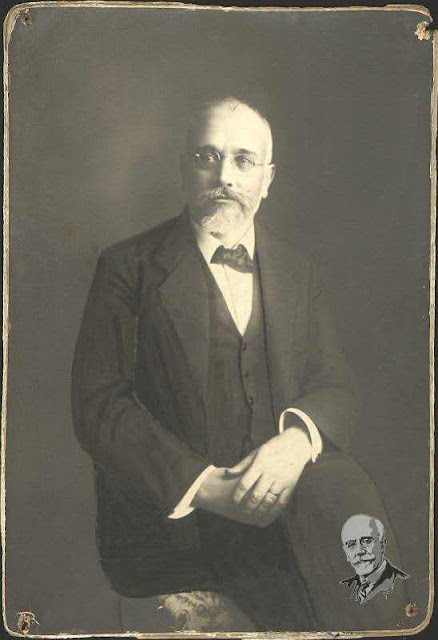Crete, the largest of the Greek islands, has a storied political history that spans centuries. This island, known for its unique culture and strong sense of identity, has produced a number of influential politicians who have left indelible marks on both Cretan and Greek national politics. The contributions of these older politicians have helped shape the political landscape of the island and, by extension, the country. In this exploration, we will delve into the lives and legacies of some of Crete’s most notable older politicians.
Eleftherios Venizelos
No discussion of Cretan politics would be complete without mentioning Eleftherios Venizelos, arguably the most influential politician in modern Greek history. Born in Mournies, Chania, in 1864, Venizelos rose to prominence during the early 20th century. He played a pivotal role in the struggle for Cretan autonomy from Ottoman rule and later in the island’s union with Greece in 1913.
As a statesman, Venizelos’s impact extended far beyond Crete. He served as the Prime Minister of Greece multiple times, and his tenure was marked by significant reforms that modernized the country. Venizelos was instrumental in the establishment of a liberal and democratic framework in Greece, advocating for constitutional changes, education reform, and economic development. His vision for a “Great Greece” also led to the expansion of Greek territories through the Balkan Wars and World War I. Despite facing political opposition and periods of exile, Venizelos’s legacy as a champion of democracy and national unity endures.
Stylianos Gonatas
Stylianos Gonatas, born in Athens in 1876 but deeply connected to Crete through his military and political career, was another prominent figure. Gonatas was a military officer who became involved in politics during a tumultuous period in Greek history. He is best known for his role in the 1922 Revolution, which led to the abdication of King Constantine I and the establishment of the Second Hellenic Republic.
Gonatas served as Prime Minister of Greece from 1922 to 1924 and again in the early 1930s. His tenure was marked by efforts to stabilize the country after the Asia Minor Catastrophe and to manage the influx of Greek refugees. He was a proponent of republicanism and worked towards the establishment of a stable democratic government. Gonatas’s political career was characterized by his pragmatic approach and his dedication to public service, even in the face of significant challenges.
Constantine Mitsotakis
Constantine Mitsotakis, born in Chania in 1918, was a towering figure in Greek politics throughout the latter half of the 20th century. He came from a prominent Cretan family with a long history of political involvement. Mitsotakis entered politics in the 1940s and quickly rose through the ranks due to his political acumen and commitment to public service.
Mitsotakis served as Prime Minister of Greece from 1990 to 1993. His tenure was marked by efforts to modernize the Greek economy, reduce public debt, and implement liberal economic policies. Despite facing significant political opposition and economic challenges, Mitsotakis remained a steadfast advocate for free-market reforms and European integration. His political career spanned several decades, and he remained an influential figure in Greek politics until his death in 2017. Mitsotakis’s legacy is carried on by his family, including his son Kyriakos Mitsotakis, who is the current Prime Minister of Greece.
Manolis Mantakas
Manolis Mantakas, born in Heraklion in 1926, was a significant Cretan politician who played a crucial role in the island’s local and national politics. Mantakas was known for his dedication to social justice and his efforts to improve the lives of ordinary Cretans. He served in various political capacities, including as a member of the Greek Parliament and as a local government official.
Mantakas was a passionate advocate for rural development and agricultural reforms, recognizing the importance of these sectors to Crete’s economy. His work helped to modernize agricultural practices and improve the livelihoods of many Cretan farmers. Mantakas’s commitment to his constituents and his tireless efforts to address their needs made him a beloved figure in Cretan politics.
Conclusion
The contributions of these older Cretan politicians have left a lasting impact on both the island and the broader Greek political landscape. Figures like Eleftherios Venizelos, Stylianos Gonatas, Constantine Mitsotakis, and Manolis Mantakas exemplify the rich political heritage of Crete. Their legacies continue to influence contemporary politics and serve as a testament to the island’s enduring spirit and commitment to public service. Through their dedication, vision, and leadership, these politicians have helped shape the course of Greek history and ensured that Crete remains a vital and dynamic part of the nation.


